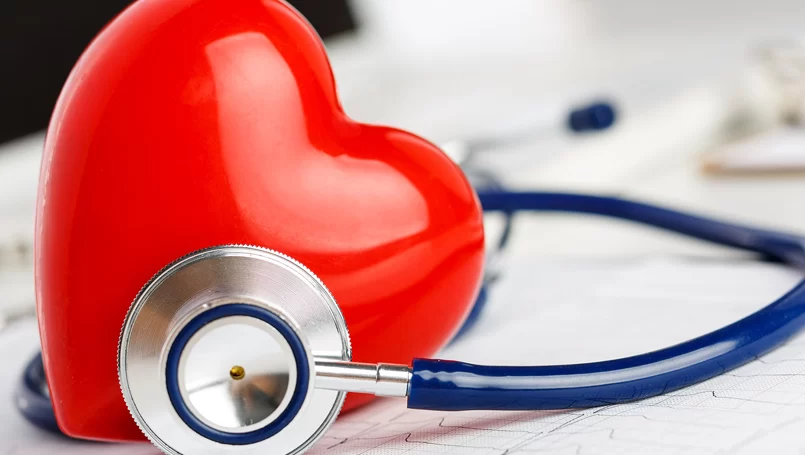The Importance of Getting a Heart Health Screening
- 1. Why Heart Health Screening Matters
- 2. What to Expect During a Heart Health Screening
- 3. Benefits of Heart Health Screenings
- 4. Common Heart Health Tests
- 5. Who Should Get a Heart Health Screening?
- 6. Real-Life Experiences with Heart Health Screenings
- 7. How to Prepare for Your Heart Health Screening
- 8. Conclusion and Next Steps
1. Why Heart Health Screening Matters
Heart health screenings are crucial for detecting potential risks early, even before you experience symptoms. Many heart conditions, such as high blood pressure, high cholesterol, or irregular heart rhythms, often develop slowly and show no obvious signs in the early stages. By getting regular heart health screenings, you can catch these issues early, leading to more effective treatment and preventing potentially life-threatening complications in the future.
2. What to Expect During a Heart Health Screening
A heart health screening typically involves a series of tests and measurements designed to assess your risk for cardiovascular diseases. During your appointment, the healthcare professional will measure your blood pressure, check your cholesterol levels, and possibly perform an EKG (electrocardiogram) to evaluate your heart’s rhythm. Depending on your age, health history, and family background, additional tests may be recommended to further assess your heart health.
3. Benefits of Heart Health Screenings
There are several key benefits to undergoing regular heart health screenings:
- Early Detection: Heart health screenings can uncover hidden issues such as high cholesterol or early signs of heart disease before they become serious.
- Prevention: Identifying risk factors early allows you to make lifestyle changes—such as adjusting your diet or increasing physical activity—that can reduce the risk of heart disease.
- Peace of Mind: Regular screenings help you stay informed about your heart health, providing reassurance or guiding you toward necessary treatments.
4. Common Heart Health Tests
There are various tests that may be part of your heart health screening. Some of the most common include:
- Blood Pressure Measurement: High blood pressure can increase the risk of heart disease and stroke. Regular screening helps monitor your blood pressure levels.
- Cholesterol Tests: Cholesterol levels, especially LDL ("bad" cholesterol), are key indicators of heart health. Elevated levels can increase the risk of heart disease.
- Electrocardiogram (EKG): This test measures the electrical activity of your heart, helping to detect irregular rhythms and other potential heart conditions.
- Blood Glucose Tests: High blood sugar can be a risk factor for heart disease, especially in individuals with diabetes or prediabetes.
5. Who Should Get a Heart Health Screening?
Heart health screenings are important for everyone, but certain individuals may need them more frequently or at an earlier age. People with the following factors should consider getting a heart health screening:
- Family history of heart disease or cardiovascular problems.
- Individuals over the age of 40 or those who are at a higher risk due to lifestyle factors (such as smoking, high-fat diet, or lack of exercise).
- People with high blood pressure, diabetes, or high cholesterol.
- Anyone experiencing symptoms like shortness of breath, chest pain, or dizziness.
6. Real-Life Experiences with Heart Health Screenings
Real-life stories often highlight the importance of heart health screenings. Take the story of Linda, a 52-year-old woman, who underwent a routine heart screening. The test revealed that her cholesterol levels were high, prompting her to make immediate changes to her diet and exercise routine. A few months later, she saw a significant improvement in her cholesterol levels and reduced her risk of heart disease. Similarly, John, a 45-year-old man, discovered through an EKG that he had an irregular heart rhythm, which led to early treatment that prevented future complications.
7. How to Prepare for Your Heart Health Screening
Preparing for your heart health screening is straightforward. Before your appointment, be sure to:
- Review your medical history: Bring any relevant medical information, including past heart conditions, family history, or medications you may be taking.
- Avoid eating or drinking for several hours: Some tests, like cholesterol screenings, may require fasting beforehand. Your doctor will provide specific instructions.
- Wear comfortable clothing: You may need to undergo an EKG or other tests that involve electrodes or physical measurements, so wear something comfortable and easy to move in.
8. Conclusion and Next Steps
Getting a heart health screening is a simple but powerful way to stay on top of your cardiovascular health. Early detection and proactive management of heart disease risk factors can lead to better outcomes and a longer, healthier life. If you haven't had a screening recently, consider scheduling one today. And, to further support your heart health, explore products like heart-healthy supplements or exercise equipment designed to help improve your overall well-being. Your heart deserves the best care, and regular screenings are the first step to ensuring its long-term health.





















